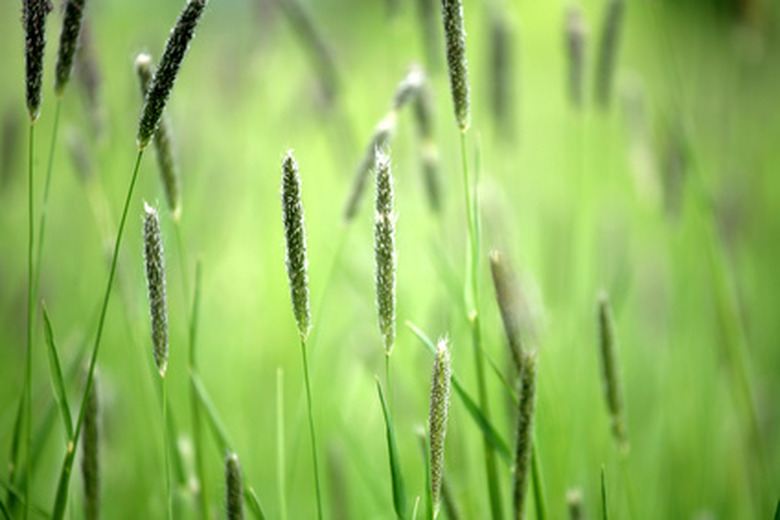How To Kill Dallis Grass
Things Needed
- Herbicide
- Gloves
- Sod
- Plastic tarp
- Vinegar
- Spray bottle
Dallis grass is imported from Australia. It is a warm season perennial grass that can be used as a pasture grass. It grows in bunches or clumps, with leaves on the bottom shoots. The leaves have a course texture. Dallis Grass invades turfgrass throughout the Southern United States. If Dallis grass grows in your lawn, it is considered a weed and should be killed. There are several ways to get rid of it, including using herbicides, vinegar and laying down a tarp to block the sunlight.
- Dallis grass is imported from Australia.
- There are several ways to get rid of it, including using herbicides, vinegar and laying down a tarp to block the sunlight.
Step 1
Lay a black tarp over the Dallis grass. It will block the sunlight, which will eventually cause the grass to die. Wood chips or newspaper will also work. This method takes time but is environmentally friendly.
Step 2
Spray small areas of Dallis grass with Roundup or another herbicide containing glyphosate. Spray according to the instructions on the label. Once the grass turns brown and dies, fill in the areas with sod such as centipede grass or St. Augustine grass. This will keep the Dallis grass from regrowing in the same spots.
- Lay a black tarp over the Dallis grass.
- This will keep the Dallis grass from regrowing in the same spots.
Step 3
Spread a tarp on the sections of your grass that you do not want to kill. This will protect the plants there.
Step 4
Pour white vinegar in a spray bottle. Spray the Dallis grass until it is saturated. If you're trying to kill more than a couple yards of the grass, buy very large bottles of vinegar.
Step 5
Let the vinegar soak into the plant. It takes at least one day for it to penetrate the Dallis grass and the roots, killing it. If it doesn't work as well as it should, reapply the vinegar until it kills all the weeds.
- Spread a tarp on the sections of your grass that you do not want to kill.
Tip
Wear gloves when handling chemicals for your safety.
Warning
Do not inhale chemicals such as herbicides. Do not apply herbicides on windy days because the chemicals will spread.
